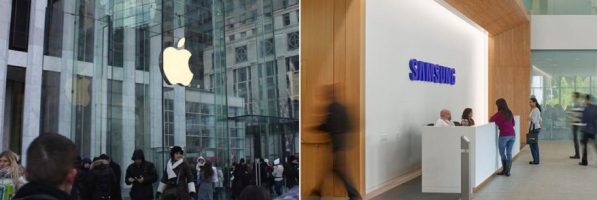MBA Job Profile: Equity Research Analyst

Many MBA students interested in a finance career think of working in corporate finance, commercial banking, financial planning, or investment banking. Rarely do they consider the more mathematically-inclined, analytical options. However, a career in equity research can be a top career choice for many finance students. It’s a valid career option for someone who is less interested in sales and communication and more interested in research, analysis, and strategy.
So, what exactly is an equity research analyst?

An equity research analyst helps analyze stocks so that portfolio managers can make better-informed investment decisions. They research companies, look at share prices, and issue recommendations on investments and M&A deals. Sometimes considered the un-glamorous and lower-paid cousin to investment banking, equity researchers are great problem solvers tasked with developing screening tools and investment models to help manage portfolios.
To be a great equity research analyst, you’ll need to be able to:
- Identify patterns in the marketplace.
- Interpret data to understand and predict a security’s behavioral outlook.
- Quantitatively analyze a stock’s statistical data compared to recent market activity.
- Create algorithms that identify stock investment opportunities.
- Understand the differences between international markets to cross-compare domestic and foreign stocks.
Equity research analysts begin their careers with a lot of financial modeling and analysis of a specific sector or group of companies. There is typically limited buy-side client interaction or interaction with top management. However, over time, your responsibilities will evolve to more report writing and formulating investment opinions and theses.
Equity Research Analyst Work/Life Balance
While an equity research analyst works long hours—typically 12-hour days—that’s nothing compared to investment banking. You may have busy seasons and times, but for the most part, your job will be relatively calm and offer some work-life balance.
Equity Research Analyst Career Advancement
However, the equity research analyst career path is less defined. You’ll generally start as an analyst for a few years before moving up to senior analyst, vice president, and then director of research. But that can be a slow process because you’re not considered as essential to the bottom line as the firm’s investment bankers.
Equity Research Analyst Salary Expectations
According to Payscale, the average equity research analyst salary is $77,901 a year with a $19,851 bonus. However, the actual range is between $53K and $143K with the largest and most prominent firms offering the highest salaries. Glassdoor’s average base salary is closer to $94,383 with analysts at J.P. Morgan earning $101,327 and Goldman Sachs analysts earning $99,699.

The majority of equity research analyst jobs are located in major metropolitan areas such as New York City, Chicago, Boston, and San Francisco, which means cost-of-living should be considered. You’ll find the highest-paid positions at private equity firms and other large financial services institutions.
Getting Started
At the minimum, you’ll need a bachelor’s degree to become an equity researcher and typically start out as an associate. Even then, a bachelor’s degree is typically not enough to get you a job at a top investment firm. Instead, you’ll need either a CFA designation or an MBA.
The CFA is mandatory for security analysis and can be earned more quickly and cheaply than an MBA. However, with an MBA you’re more likely to have the professional network you need to earn a position at a top investment firm.
Top MBA Programs for the Job
Since a career as an equity research analyst is closely linked to investment banking, the top MBA programs are fairly similar. A few solid MBA program choices include:
NYU Stern
NYU Stern is a top school for a career in investment banking and equity research. The banking specialization covers risk management and other related topics with classes such as credit risk, valuation, and risk management in financial institutions. There is also a quantitative finance specialization specifically for more mathematically-inclined finance careers. You’ll learn stochastic processes, statistics, and applied economics.
Columbia Business School
At the Columbia Business School, the Investment Banking Club provides an opportunity to learn investment banking and recruiting, helping students develop strong relationships in the industry. There is also a specific Equity Research Club, which is designed to educate, inform, and bring together Columbia MBA students interested in this career field.
University of Chicago Booth
The Investment Banking Group at Chicago Booth is equipped to help MBA students learn about the investment banking industry. The goal is to guide students to landing a successful career at an investment bank. There’s also an Analytical Finance concentration designed for students interested in risk management, equity research, and more. Classes include Advanced Investments and Advanced Models of Option Pricing and Credit Risk.
Where Should I Work: Apple vs. Samsung

Apple and Samsung are two of the premiere mobile phone and technology companies in the world. But from the outside, it may be tough to gauge what sets them apart as employers.
Continue reading…Top MBA Recruiters: Moelis & Company

Moelis & Company is the investment bank of the future. The New York-based company was founded in 2007, on the heels of the Great Recession, so it’s familiar with the uncertainty our future holds. That’s why clients have trusted it with more than $2.9 trillion worth in investments. That makes a Moelis & Company career a great place for MBA students and graduates to grow.
Continue reading…Top MBA Recruiters: Estée Lauder

An Estée Lauder career may not sound like a typical business person’s goal, but let me tell you: Beauty sells.
Continue reading…What an ADP Job Can Mean for MBA Candidates

Most people may be familiar with New Jersey-based software company ADP when it’s pay day. The company offers human management software—and it’s where many turn to access their digital paystubs and salary info. But remember: There are people behind the machine, and an ADP job offers incredible career opportunities for MBA students and grads alike.
The company—whose letters stand for Automatic Data Processing (or Always Designing for People (depending whom you ask)—has some 58,000 associates worldwide, and that number is only growing with open positions around the globe. Business school grads are sure to have the necessary chops to improve the company’s workforce, but they’ll need some key info to be sure that it’s the right place for them.
ADP Career Outlook
This is a pretty big-deal company even if it’s not a household name. It’s been featured on the Forbes 500, which ranks companies based on their sales, profits, assets, and employees. In fact, ADP boasts an annual revenue of more than $13 million. Since first joining the Forbes 500 in 1996, the company’s ranking has only gone up.
To make things better, Forbes lists it 21st overall for its “Best Employers for Diversity 2018” list, so MBA students and graduates of color can rejoice in knowing this is a place that’ll appreciate their unique experiences and perspectives. The fact that its employees come from around the world is certainly a plus, too. Its office has locations in more than 25 countries, including the U.S., Brazil, Hungary, Singapore, and India.
Featured job openings at ADP include:
- Sales executive
- Project manager
- Client support consultant
- Account executive
- Business consultant
- Associate district manager
ADP Job Salary and Benefits
Let’s be honest: Much of a company’s appeal comes down to what it offers. The average salary at ADP is $80,000, according to PayScale. That’s not too shabby. And employees at the company seem fairly happy. That’s true, according to the country’s own testimonials but also from what employees have recorded on Glassdoor.

The reviews are largely positive, and most workers would even recommend the job to a friend. Why? Weekends are off. People actually go home when they’re supposed to. Many people rave about the company culture. I guess offering holidays, personal days, and paid vacations will create a damn good culture.
But that’s only a snippet of the benefits ADP offers. The company also is sure to give its employees the basics: life insurance, medical insurance, a matched 401K, and commuter savings. ADP doesn’t stop there, though. Tuition reimbursement, paid volunteer time off, access to the ADP Federal Credit Union, and mentoring also come with a job at ADP.
“This is the kind of environment that embraces new associates and that really is looking for external perspective, looking for a diversity of opinions, and you can come to this organization and really make an impact,” said Susan Quatrella, ADP’s vice president of compensation, in a statement.
Landing The ADP Job
Someone can score a role at ADP in the field of marketing, sales, or human resources. Still, a diverse skill set never hurts, especially when entering the tech world. The company is globally minded, so those interested in working should be sure they have the proper know-how to appeal to that. Perhaps consider focusing your MBA in global management or choosing a program with an international MBA. Interning at another company with a global workforce could sure help, too.
The possibilities are really endless here. If you want to take a more tech focus with your MBA, ADP’s got something in development for you. If numbers are more your jam, a role in finance is sure to be waiting. Just be sure to hone your craft and sell whatever your focus area may be so that you can show ADP—or any company, for that matter—just why they need you on their team.
Why Business School Grads Should Consider HubSpot

Massachusetts-based tech development company HubSpot builds tools and software for marketing and sales teams to help make their lives a little more organized and easier. It’s not only a godsend for its customers but also for its employees. Glassdoor dubbed HubSpot the “Best Place to Work in 2020.” For the last 12 years, Glassdoor ranks the top 100 companies by user data, such as a company’s culture and workplace ratings. So, actually, that means employees choose the winner.
Continue reading…